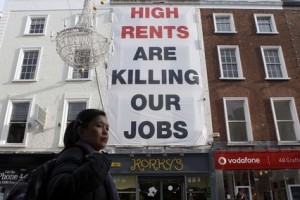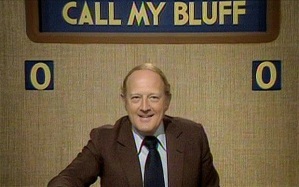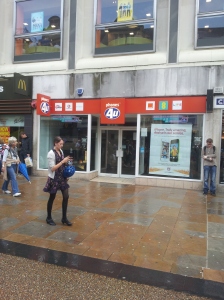Many of us watched the goings on at the Sports Direct AGM yesterday open-mouthed at the level of drama being acted out both on and off the stage.
Shareholder revolts are nothing new, and Ashley and Keith Hellawell surely had it coming, especially as it emerged recently that Hellawell had attempted to dodge the bullet of criticism by tendering his resignation before the company published its damning review into working practices.
One of the major criticisms being lobbed at Mike Ashley is the treatment his staff have to endure as a result of regular end of shift searches. So it was doubly ironic that yesterday he suffered the same ignominy under the full glare of the cameras.
https://twitter.com/SimonNeville/status/773498897293570048
One wonders if the inclusion of a huge wad of fifty pound notes in his trouser pocket was a deliberate attempt at bravado. The search came as part of a tour of the warehouse facilities Ashley was leading, presumably as part of an attempt to show improved working practices. He must have known it was going to happen, so the appearance of that crisp wedge of cash would have been unavoidable. Or perhaps he’s just so loaded he forgot about that bit of loose change in his trousers. If that’s the case perhaps he should be renamed Blackadder after this scene from the show.
What it says about Ashley rather belies the impression I got of him at the recent Parliamentary inquiry he attended. I wrote the column below for Retail Week last Month, but after yesterday’s performance I think I may have to revise my assessment.
He may still like to consider my suggestions for improvements in working conditions though, even though they may rob him of future chances to whip his wad out when he needs to make an entrance.
I stand by my judgement on Philip Green however, who seems to get more loathsome by the day. As an ambassador for all that’s great about retail success, he’s about as welcome as a turd in a swimming pool. Even if that swimming pool is on board a 100 million pound penis extension. The recent ‘renaming’ of his fabulous yacht by comedian Lee Nelson rather summed up my feelings and probably those of the thousands of BHS staff and pension holders he’s helped to leave in dry dock
https://twitter.com/RealLeeNelson/status/773227818075492352
My Column from Retail Week 11th August
Watching the recent Parliamentary appearances of Mike Ashley and Sir Philip Green, I was surprised to find myself warming slightly to Mr Ashley, something I’d never have imagined possible a few months ago.
That said it was rather like deciding which dastardly stage villain you’d most like to share a stage with, or perhaps a better analogy would be the pantomime horse.
In Green’s case he came across as arrogant and resentful. Quite obviously certain in his belief that he was better than every person in the chamber.
It was a performance of bravado and bluster that, if I had my psychologist’s hat on, I’d say was more over-compensation than real attitude. But then considering he apparently needs one yacht for himself and several others for his ego, I might be giving him a far too sympathetic analysis.
In both cases it’s apparent that they were less concerned about how their behaviour reflected on their own companies than they perhaps should be. A blasé attitude that their customers will remain loyal to their brands, regardless of their attitude to the usual social mores that constrain the rest of us.
Ratner Moment
They may be right, but I wonder how far we’ve really moved on from the days when a mis-timed joke can bring down a company, as we saw with Gerald Ratner 25 years ago (yes it really has been that long!). There but for the grace of the god of retail goes any of us.
With that in mind I remain baffled over Sir Phil’s nonchalance at being photographed relaxing on the deck of his third multi-million pound status symbol, while BHS sinks slowly to the bottom with the loss of almost all hands. As Gerald discovered to his cost, timing is everything.
Mike Ashley at least looked like he was taking the questions being asked seriously though. Considering he reportedly had to be dragged to Parliament ‘kicking and screaming’ he seemed to warm to the experience remarkably well.
His main defence against the revelations of questionable staff treatment at his distribution warehouses was ignorance of the circumstances and practices going on inside his own company.
I’m not going to speculate about the veracity of that claim, but as in many walks of life, as with MPs, doctors, military leaders, and business owners, the fault ultimately lies with the person at the top. They set the tone and decide the ethos and culture of the organisation. It’s really not a defence to say ‘Not me guv!’.

The culture in Sports Direct seems to be one of expediency and antipathy. A strata of mistrust that runs through the company from the warehouse and shop floor staff upwards. A belief that everyone is out to get everyone else.
Ashley expressed dismay that the daily searches of warehouse staff were taking longer than they did when he set them up 10 years earlier. But in that admission he confirms that the general tone of the relationship between staff and management remains one of distrust.
Trust
Perhaps he’s right to feel that way, but that does beg the question as to why they would employ staff that they did not have absolute faith in. Perhaps past experience informed their actions and the belief that they would be robbed blind if they didn’t watch everyone like a hawk.
To me that lack of trust seems to be at the heart of the problems at Sports Direct. Sadly, rather than dealing with that, Ashley has pushed to improve the searching procedures to reduce the ‘bottlenecks’ at the end of shifts.
But another approach would have been to foster more loyalty in his workforce so that they might be less inclined to help themselves to a five-fingered bonus in the first place.
The culture in Sports Direct seems to be one of expediency and antipathy. A strata of mistrust that runs through the company from the warehouse and shop floor staff upwards. A belief that everyone is out to get everyone else.
Studies carried out many years ago showed an inverse relationship between company culture, pay levels, job security and the problem of pilfering. In my own company, selling many easily pocketable items of high value, we never resorted to body searches. I did consider them on occasions, but felt that the damage they would do to morale and staff relationships weren’t worth the small amounts that we undoubtedly lost over the years.
And with stringent stock control procedures in place, and – most importantly – seen to be in place, we knew the losses were minimal, even though on one occasion we had to have the manager and all the staff in a branch arrested over cash handling irregularities.
The key for me was that we had a good relationship with our staff and there was mutual trust and respect. I’m firmly convinced that prevented just as much shrinkage as any number of cavity searches, body scanners and security staff.

So as Mike Ashley starts to get to grips with the managerial problems within a company that he admits may have outgrown previous internal audit procedures, he could perhaps do worse than take a look down the other end of the telescope. Put himself in the place of his workforce who, if recent reports are to be believed, feel undervalued, under-paid and under suspicion.
A more open and meritocratic attitude towards HR management has so often been cited as the root of success in many companies, most notably in the IT sector. Likewise success in retail doesn’t have to come down to the hard nosed antisympathetic treatment of those who work for you and with you.
Moreover, in terms of customer facing businesses like ours, we certainly don’t need our leading lights to be seen in the media as disconnected, uncaring profiteers. Or to be dubbed by the press as “Rude, unprofessional and bad-tempered”.
Indeed as we’re finding out now, in a supposedly more enlightened and informed world, such behaviour could not only be counter-productive, it may even lead to another ‘Ratner moment’ in the very near future.


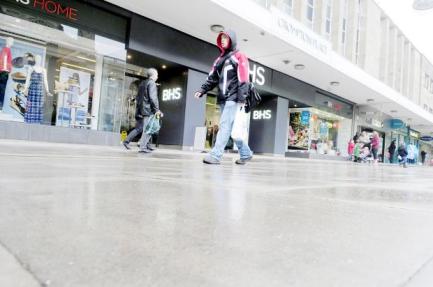 I greeted the news of the sale of BHS to Retail Acquisitions with the same feeling of incredulity I’d previously experienced over Gordon Brother’s purchase of the ailing Blockbuster chain in 2013.
I greeted the news of the sale of BHS to Retail Acquisitions with the same feeling of incredulity I’d previously experienced over Gordon Brother’s purchase of the ailing Blockbuster chain in 2013. M&S still has it’s problems, but it’s taken a far more robust route towards re-inventing itself than was ever evident at BHS. Updated, more up-market branding, a re-positioned clothing offer and a far more efficient front of house has kept Marks and Sparks out of the clutches of the receiver. Above all though it seems that dodging the bullet of being added to the Green portfolio was a far greater benefit to it’s survival.
M&S still has it’s problems, but it’s taken a far more robust route towards re-inventing itself than was ever evident at BHS. Updated, more up-market branding, a re-positioned clothing offer and a far more efficient front of house has kept Marks and Sparks out of the clutches of the receiver. Above all though it seems that dodging the bullet of being added to the Green portfolio was a far greater benefit to it’s survival. I hope in the spirit of openness and transparency recently inspired by his friend David Cameron, Sir Phil will be just as forthright about his own personal financial arrangements. I’m sure speculation that, during the 15 years of his ownership, he trousered remuneration roughly equal to the hole in the pension fund is just a random quirk of inconsequential coincidence.
I hope in the spirit of openness and transparency recently inspired by his friend David Cameron, Sir Phil will be just as forthright about his own personal financial arrangements. I’m sure speculation that, during the 15 years of his ownership, he trousered remuneration roughly equal to the hole in the pension fund is just a random quirk of inconsequential coincidence.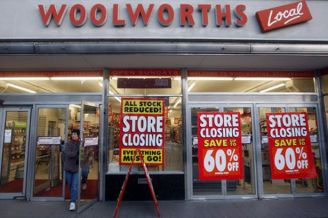 When Woolies went down there were plenty of takers from the bargain end of the retail spectrum eager to gain extra floor space. That sector is largely saturated now, although B&M Bargains are apparently eying some of the BHS portfolio.
When Woolies went down there were plenty of takers from the bargain end of the retail spectrum eager to gain extra floor space. That sector is largely saturated now, although B&M Bargains are apparently eying some of the BHS portfolio.